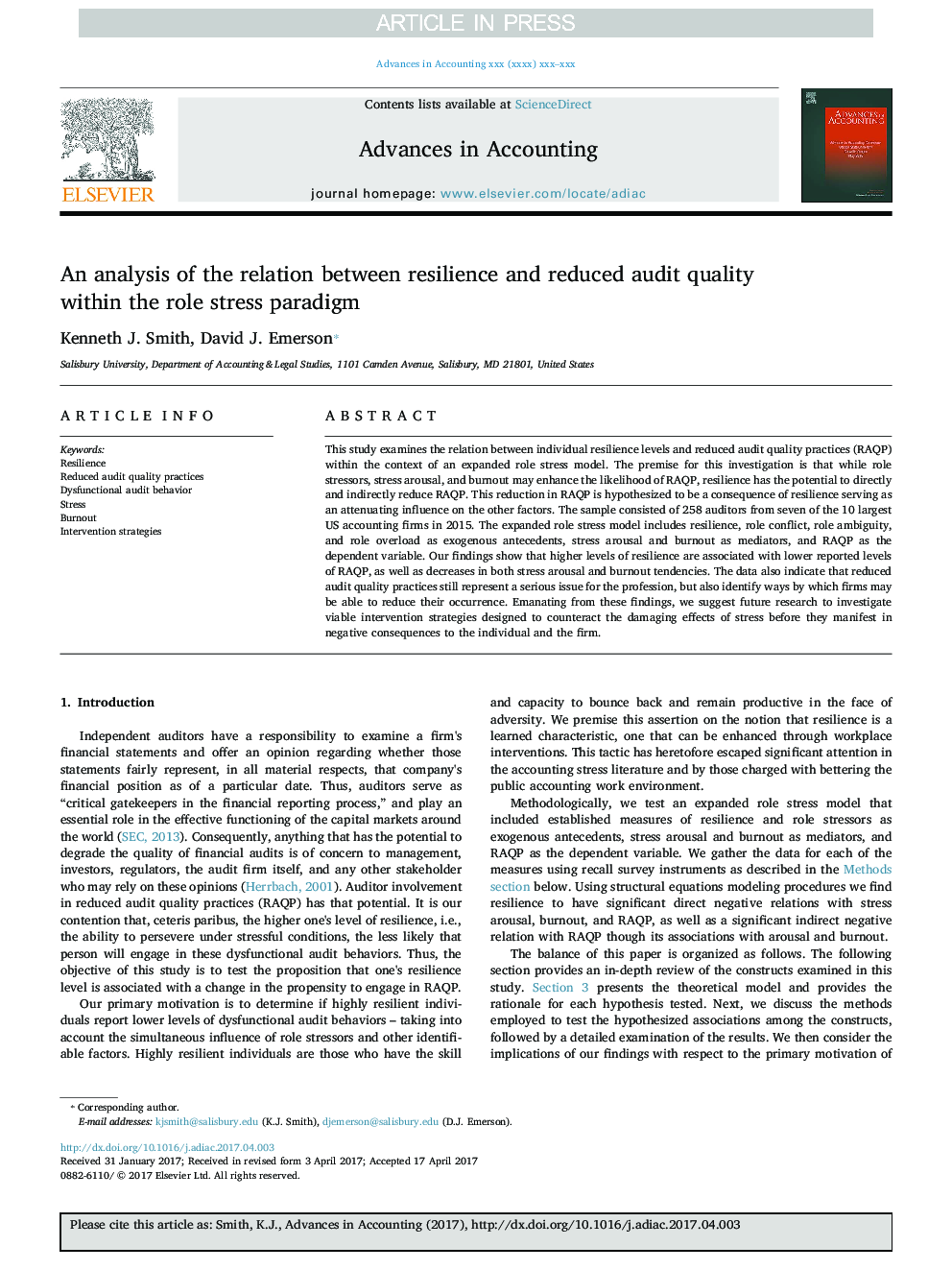| Article ID | Journal | Published Year | Pages | File Type |
|---|---|---|---|---|
| 7339739 | Advances in Accounting | 2017 | 14 Pages |
Abstract
This study examines the relation between individual resilience levels and reduced audit quality practices (RAQP) within the context of an expanded role stress model. The premise for this investigation is that while role stressors, stress arousal, and burnout may enhance the likelihood of RAQP, resilience has the potential to directly and indirectly reduce RAQP. This reduction in RAQP is hypothesized to be a consequence of resilience serving as an attenuating influence on the other factors. The sample consisted of 258 auditors from seven of the 10 largest US accounting firms in 2015. The expanded role stress model includes resilience, role conflict, role ambiguity, and role overload as exogenous antecedents, stress arousal and burnout as mediators, and RAQP as the dependent variable. Our findings show that higher levels of resilience are associated with lower reported levels of RAQP, as well as decreases in both stress arousal and burnout tendencies. The data also indicate that reduced audit quality practices still represent a serious issue for the profession, but also identify ways by which firms may be able to reduce their occurrence. Emanating from these findings, we suggest future research to investigate viable intervention strategies designed to counteract the damaging effects of stress before they manifest in negative consequences to the individual and the firm.
Related Topics
Social Sciences and Humanities
Business, Management and Accounting
Accounting
Authors
Kenneth J. Smith, David J. Emerson,
